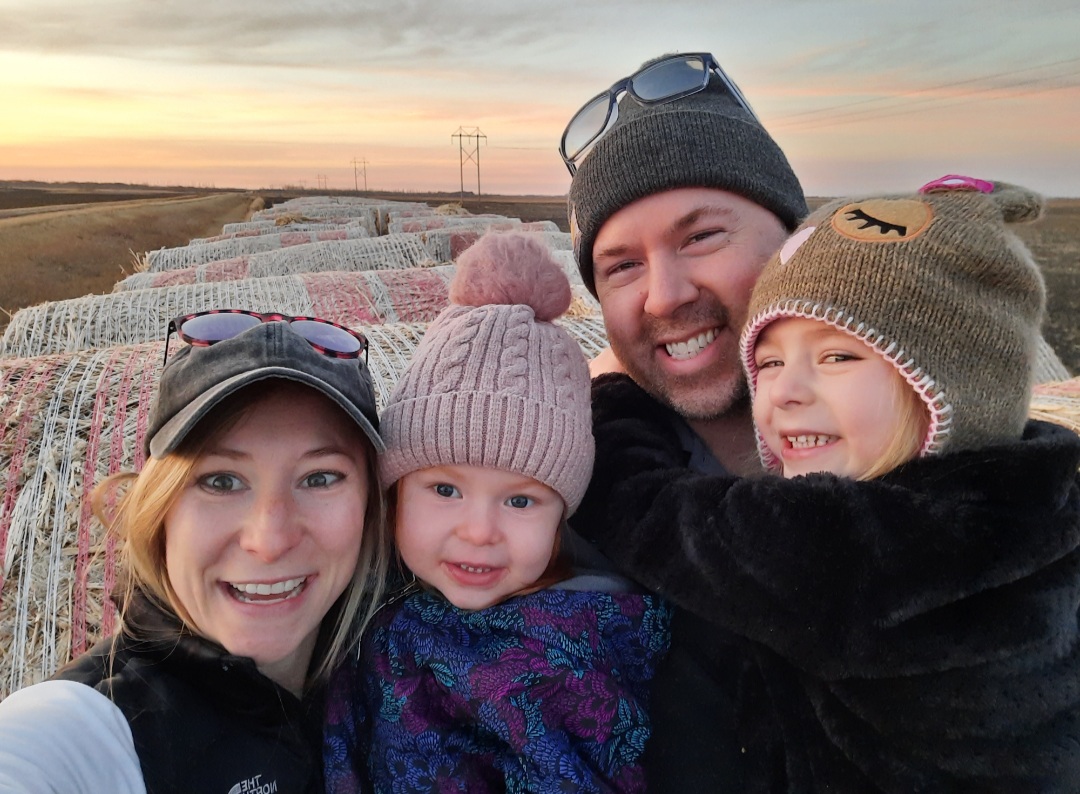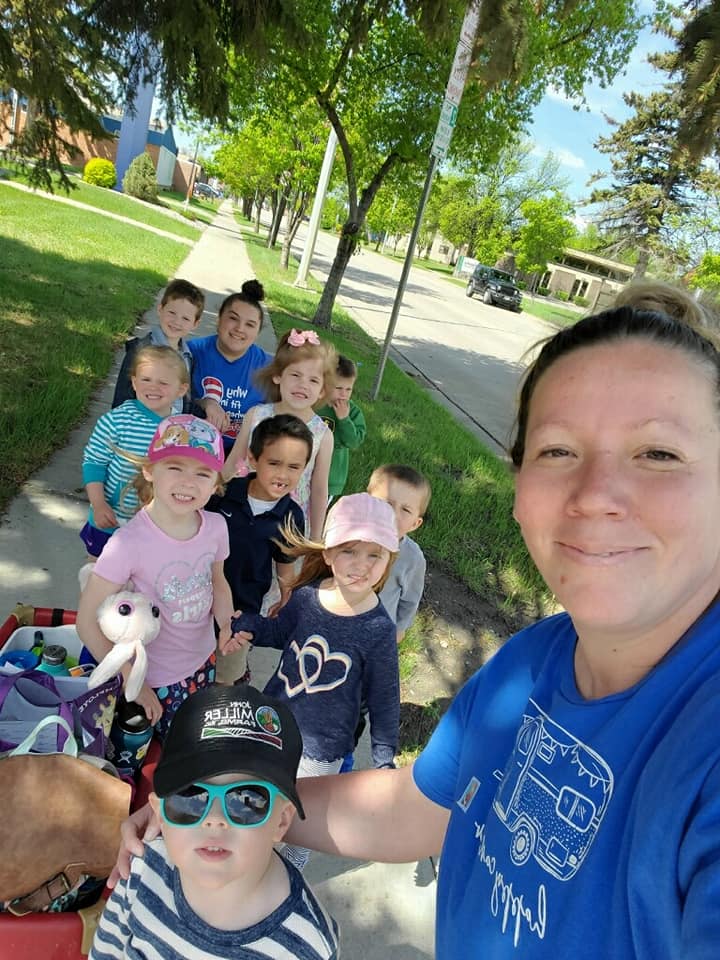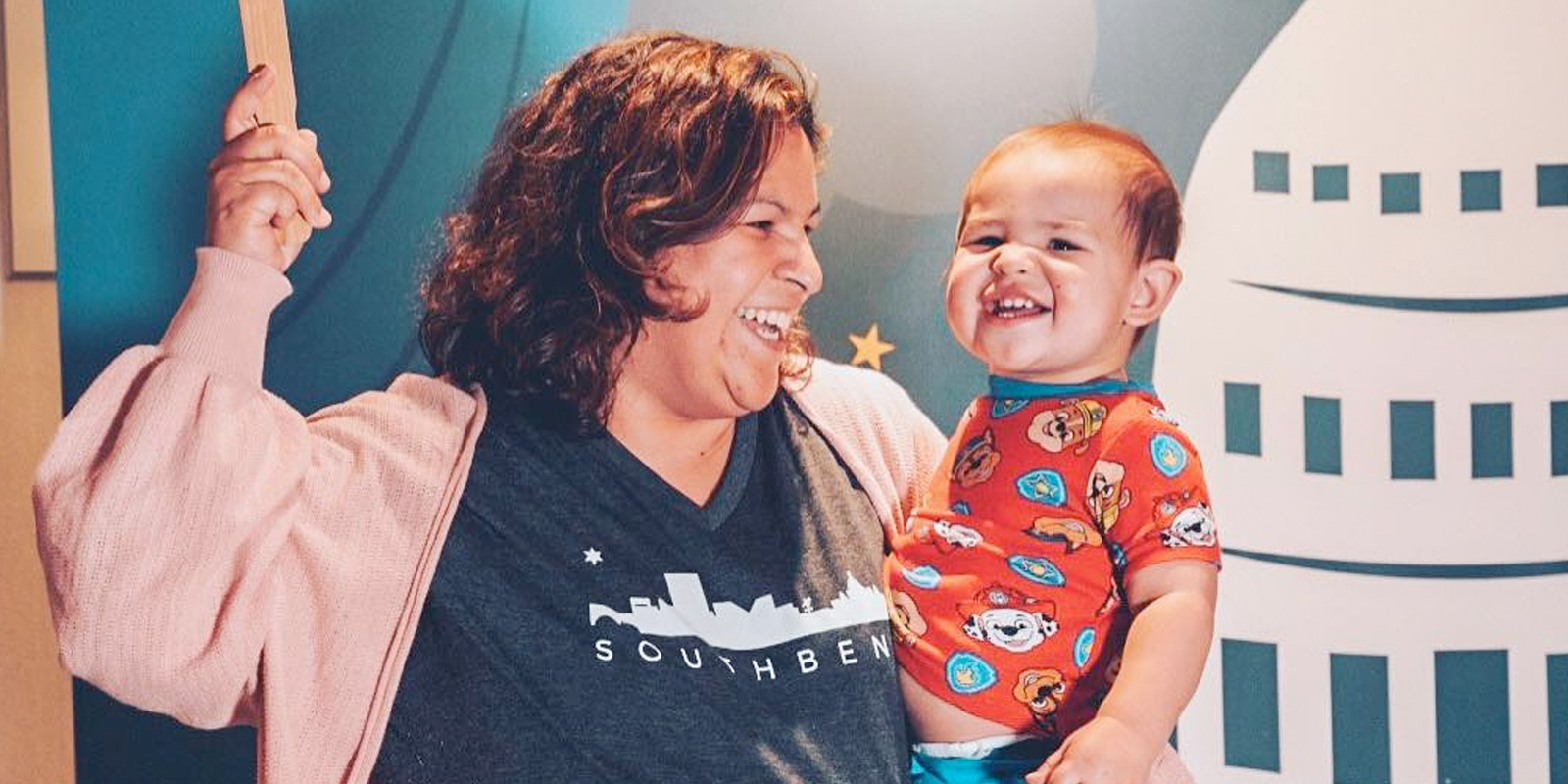Every spring, ZERO TO THREE’S Strolling Thunder unites the voice of parents and caregivers to remind Congress that babies matter. For the second year in a row, the event took place virtually. Amber Osowski of North Dakota jumped at the chance to have her say.

“I’m a mom and a boss,” proclaims the owner and operator of Rocking Horse Child Care Center in Grafton, N.D. She knows all about how to run a business and how to take care of young children—her own and the two dozen or so who attend her center. She can do it all, pretty much.
But sometimes even an irresistible force like Osowski comes up against an immovable object, for example, a little boy on the playground who insists on taking off his shoes. His socks are getting dirty. And the other children see what he’s doing and start thinking maybe it’s a good idea to take off theirs too.
“It’s not enough to tell him to stop,” she says. “You have to get down on the ground with him and find out why he’s taking off his shoes. Maybe there’s a pebble in there. Maybe his sock feels funny.” When you find out his ‘why,’ you can explain your ‘why’—his socks will get dirty, he might step on something sharp—and then maybe he’ll change his behavior.
Finding out why doesn’t just work on the playground. It also helps when you’re talking policy with legislators. “It was a very honest discussion,” Osowski reports. “I told them, ‘You’re the experts on bills and laws. I’m the expert on kids.’”
(Can’t see this video in Firefox? Click here to learn more, or click here to watch on Facebook)
Osowski and her husband, who sells insurance, have two children of their own, with a third due in October. Her Rocking Horse journey started when she was working at a florist while pregnant with her first child. When her mother-in-law died suddenly, the family had to grieve—and also find a way to make up for the free child care they were counting on. “The possibilities were few and far between,” she recalls. “And we were way behind.”
Having worked in the field, she knew it was important to look for quality. The second oldest of seven children, she knew she understood children. Coralea was born in November 2016, and Rocking Horse opened in August 2017. They started with 10 children. Now they have 24, and seven teachers. Teachers, bankers and farmers know they can trust Rocking Horse with their children. “The waiting list is as long as my leg,” she says.
“Clearly this is what I was meant to do.”
That doesn’t mean it has been easy. The pandemic has been the most significant but by no means the only challenge. “Even with CARES dollars,” she notes, “we took a hard hit during COVID.” Twice they had to shut down when teachers tested positive.

“Staffing is a huge issue,” she says, acknowledging that this isn’t the most glamorous job. “We work our buns off for other people’s kids. There are a million different things to do every day.” Finding and keeping good teachers is important, because turnover really affects the kids, so she strives to be accommodating with schedules and also to pay a fair wage.
👉 Download the State of Babies Yearbook 2021
Public funding isn’t just a nice idea; it’s vital for her to keep the doors open. “That money is an investment in our community’s future,” she says.
During her Strolling Thunder conversations, Osowski explained how the parents rely on Rocking Horse so they can get to work. She described the desperation of parents in nearby Drayton, N.D., whose center shut down—something she says happens all the time. To make matters worse, the state’s Lutheran Social Services recently shut its doors, depriving the community of Child Care Aware resources to help find quality options.
Above all, Osowski stressed that the education she provides prepares the children for kindergarten and beyond. She describes a three-year-old boy—not the one who kept taking off his shoes—who initially couldn’t count the tater tots on his plate. “He didn’t know his letters or numbers at first,” she recalls. “We had to play catch-up to get him ready for school. Where would he be without me?”
The birth-to-preschool years really matter, Osowski asserts. This is the age when they learn they’re good at things, that they can become bosses in the future, or do anything if they set their mind to it. “This is when their knowledge and passion come into being,” she says. “And we can’t risk that.”

Mark Swartz
Mark Swartz writes about efforts to improve early care and education as well as developments in the U.S. care economy. He lives in Maryland.



